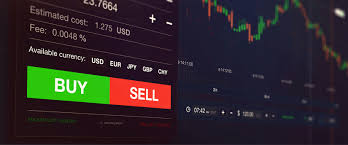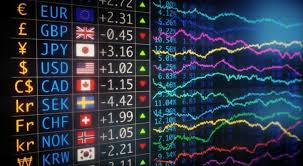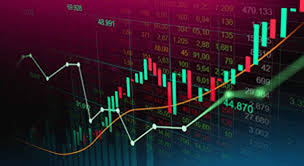
Understanding Forex Trading Servers: A Comprehensive Guide
In the fast-paced world of forex trading, the role of trading servers cannot be overstated. These servers act as the backbone of online trading platforms, ensuring that orders are executed swiftly and accurately. The quality and reliability of a trading server can significantly impact trading strategies and ultimately, profitability. In this article, we will delve into the various aspects of forex trading servers, including their types, features, and how they affect your trading experience. For more insights, you can check out forex trading servers Latin America Trading.
What is a Forex Trading Server?
A forex trading server is a computer system that handles the trading operations in the forex market. It processes transactions, manages order flow, and connects traders to the interbank market. These servers can be categorized into two main types: centralized and decentralized servers. Centralized servers are operated by a single broker or trading platform, while decentralized servers utilize a network of computers to facilitate trading.
Importance of Forex Trading Servers
The efficiency of a forex trading server can greatly influence a trader’s ability to execute orders without delays. High-quality servers reduce latency, which is crucial in volatile markets where prices can change rapidly. A reliable server ensures that traders can place their orders at the desired price, minimizing the risk of slippage and maximizing potential profits.
Types of Forex Trading Servers
1. Centralized Servers
Centralized servers are controlled by a particular brokerage. All trading activities are channeled through these servers, which means the broker has complete control over the order execution process. While this can be advantageous for maintaining liquidity and easing the trading experience, it can also pose risks such as server overloads during peak trading times.

2. Decentralized Servers
Decentralized servers offer a more distributed approach, where transactions do not strictly rely on a single entity. These servers connect traders with multiple liquidity providers, thus enhancing the overall trading experience. The decentralized nature of these servers can help reduce the risk of server downtime and improve order execution speed.
Key Features of Forex Trading Servers
1. Low Latency
Low latency is critical in forex trading as it allows traders to execute orders quickly. Delays can lead to price changes, thus impacting the effectiveness of trading strategies. A good trading server should prioritize minimizing latency to enhance trading performance.
2. Redundancy and Reliability
A reliable server should have backup systems in place to ensure that trading operations continue even in the event of a failure. This redundancy protects against data loss and trade interruptions, allowing traders to operate without fear of sudden outages.
3. Security
Security is paramount when it comes to trading servers. Brokers should implement robust security measures to protect user information and trading data from cyber threats. Features like encryption and two-factor authentication can enhance the security of trading servers.

How Forex Trading Servers Affect Your Trading Strategies
The choice of a trading server can directly impact the effectiveness of different trading strategies. For instance, scalpers, who rely on executing numerous trades in a short timeframe, benefit significantly from low-latency servers. On the other hand, swing traders might not experience drastic differences in execution speed as they operate on longer timeframes. Understanding how your trading strategy correlates with server performance is crucial for optimizing your trading approach.
Choosing the Right Forex Trading Server
When selecting a forex trading server, several factors need consideration. These include the broker’s reputation, the speed and reliability of the server, as well as the server’s geographical location. Proximity to trading venues can reduce latency substantially, making it an important factor for traders who prioritize speed. Additionally, comparing different brokers and their server offerings can provide insights into which might better align with your trading needs.
Conclusion
In conclusion, forex trading servers play a crucial role in the trading ecosystem. They influence not only the speed of order execution but also the security and reliability of trading operations. As a trader, understanding the types of servers available and how they can impact your trading strategies is essential for successful trading. By choosing the right server, you can enhance your trading performance and increase your chances of achieving your financial goals in the forex market.
Further Reading
For those interested in further improving their trading efficiency, consider exploring additional resources on trading psychology, technical analysis, and market trends. Investing time in acquiring knowledge about the forex market can lead to more informed trading decisions and ultimately to greater success in your trading endeavors.



